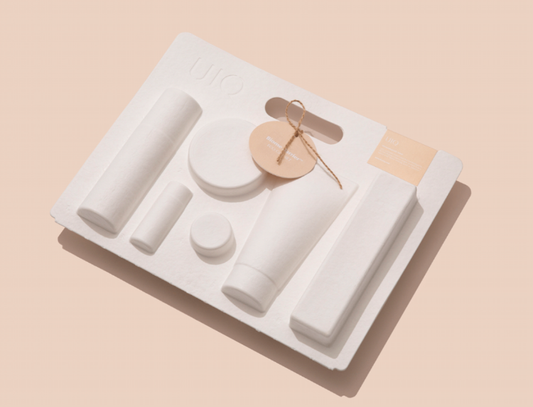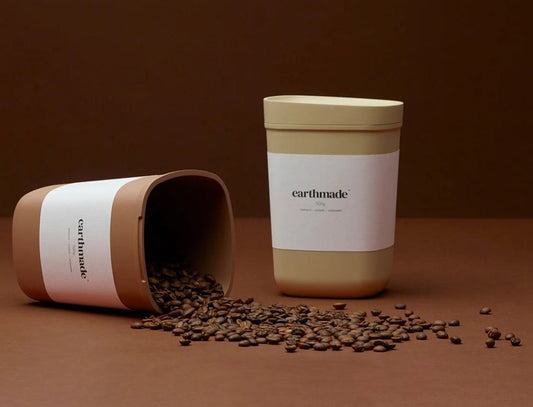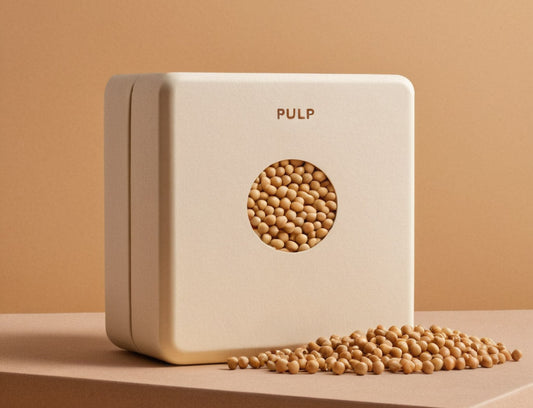In an era where the clamor for environmental sustainability is louder than ever, the conversation around packaging solutions has shifted towards eco-friendly alternatives. Among these, molded pulp packaging stands out as a beacon of sustainability and recyclability. This guide delves into the world of molded pulp products, offering insights into their recyclability, and addressing frequently asked questions about custom pulp molded packaging, pulp molded tray and pulp molded products.
What Is Molded Packaging
Molded pulp packaging, also known as molded fiber packaging or molded paper pulp, is crafted from recycled paperboard and newspapers, making it a stellar example of sustainability in action.The process of paper pulp molding involves mixing water and recycled paper to form a slurry, which is then shaped into packaging products through specialized molds.These materials are commonly used for protective packaging (like egg molded cardboard packaging or electronic cushioning), pulp pallets, and sustainable alternatives to plastic.

The Benefits of Recycling Molded Pulp Packaging
Recycling molded paper pulp packaging not only contributes to reducing waste in landfills but also plays a significant role in conserving resources. Molded pulp suppliers champion this material for its biodegradability and compostability, making it a prime choice for businesses and consumers alike who are keen on minimizing their environmental footprint. Moreover, recycling molded pulp helps in saving energy and reducing greenhouse gas emissions, further bolstering its eco-friendly credentials.
Frequently Asked Questions
1. Is molded pulp packaging recyclable?
Yes, most molded pulp products are 100% recyclable. They can be placed in your recycling bin alongside other paper products. However, it's crucial to ensure they are free from food residue or other contaminants before recycling.
2. Is molded pulp packaging compostable?
Absolutely. Molded pulp packaging is compostable and biodegradable. Since it is primarily made from recycled paper or natural fibers, it can re-enter the recycling stream or decompose in industrial composting facilities. If not treated with synthetic coatings, molded pulp is biodegradable and can enrich soil when composted.
3. What are the uses of recycled molded pulp packaging?
Recycled molded pulp products can find new life in various forms, such as eco-friendly cosmetic packaging, 100% biodegradable perfume box, or even as material for new molded pulp products. This cycle of reuse and recycling underscores the sustainability of molded fiber packaging.

Choosing the Right Molded Pulp Supplier
When sourcing molded pulp packaging, it's essential to partner with suppliers who prioritize sustainability and use post-consumer recycled content. Look for molded pulp suppliers that offer custom eco-friendly packaging solutions, tailored to meet your specific needs while aligning with your environmental values.
Guide to Understand the Pulp Molded Packaging
Embarking on the journey of utilizing molded pulp packaging requires a thorough understanding of its benefits, recyclability, and the impact it has on the environment. By choosing molded pulp products, businesses and consumers can significantly contribute to waste reduction and resource conservation.
For those looking to explore further, consider researching the variety of applications for molded pulp packaging, from eco-friendly cosmetic packaging to eco-friendly bakery packaging. The versatility and sustainability of molded pulp make it an ideal choice for packaging needs across industries.
In conclusion, molded pulp packaging offers a sustainable, recyclable solution that aligns with the growing demand for eco-friendly packaging options. By embracing this material, we can make strides towards a more sustainable future, one package at a time. For more information on molded pulp products and how you can integrate them into your packaging strategy, click here to explore OtaraPack's packaging solutions.














